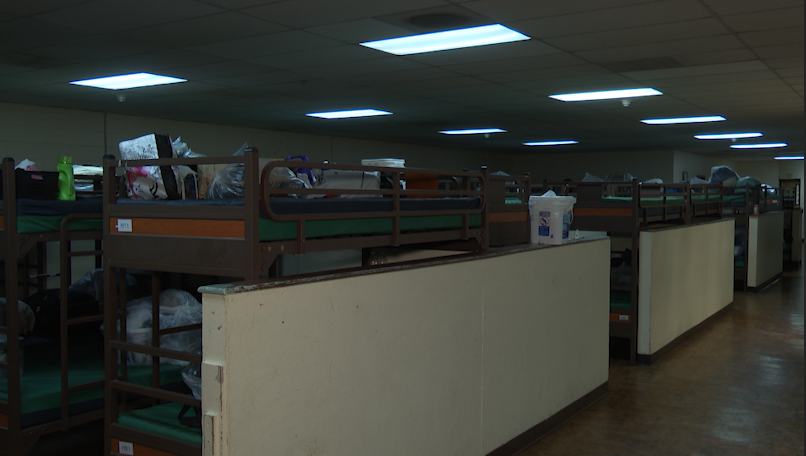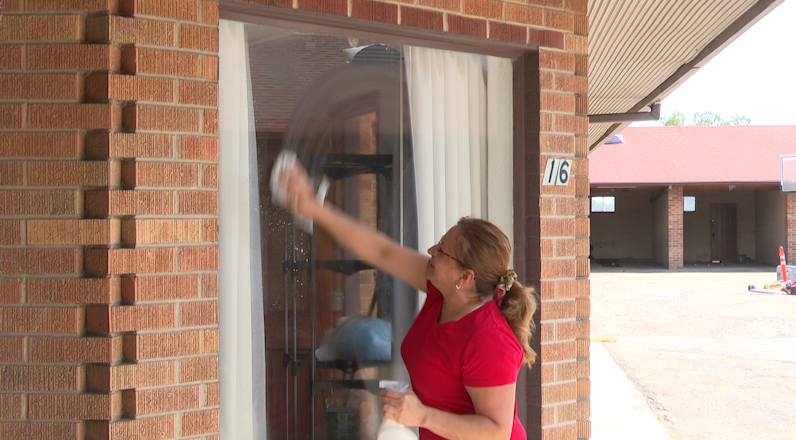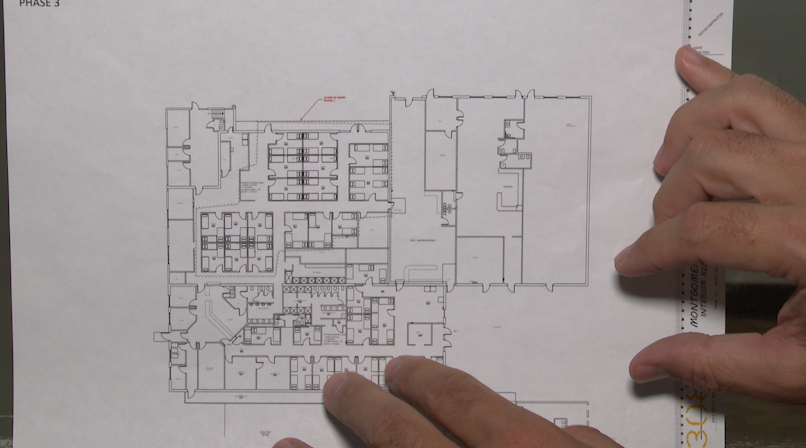What’s next for homeless, displaced families in Colorado Springs after closing of family shelters?
COLORADO SPRINGS, Colo. (KRDO) -- Advocates agree that families are the fastest-growing segment of the homeless population, but few resources are available to provide them with temporary housing.
Those resources shrank even more at the end of July when a decrease in donations led to the closing of the New Promise Family Shelter, on South Nevada Avenue, after two years of operation.

Crystal Karr, executive director of Family Promise, said that the property -- originally a motel -- will be taken over by an unspecified nonprofit agency that will serve other homeless individuals, but not families.
"When our shelter was open, we had 15 rooms available and were full every night with around 56 people," she said. "But there are probably 50 families every month seeking a temporary shelter. So the demand is growing and now we no longer have this resource available to them."

Some of the families staying there moved to the City Hope shelter, on North Nevada Avenue, which offered temporary shelter in another former motel that also serves as a COVID-19 recovery center for the homeless -- but that center is scheduled to close Aug. 31.

"I don't know where we'll go next," said Darrell Winkler, a City Hope resident who moved from Family Promise with his wife and infant daughter. "Our house burned down a year-and-a-half ago. That's what got us in this position, along with some health issues."

Steve Posey, the city's community development manager, said that officials will try to find better housing situations for the City Hope residents when it closes.
"Usually, we had 20 rooms available and when we were full, we served 18 to 20 families a night," he said. "We didn't have more than a few COVID patients and everyone had separate rooms to maintain social distancing."

The sole remaining option for homeless families as of Sept. 1 is at the Salvation Army's RJ Montgomery Shelter, on Sierra Madre Street, just southwest of downtown.
However, the shelter has space for only 15 family members, and fathers are not allowed to stay in the same area with their families.

But there are plans to provide more shelter space for affected families.
Karr said that within a few months, the Interfaith Hospitality Network will oversee a program allowing three homeless families to spend nights in spaces provided by participating churches.

"Those won't be low-barrier shelters as Family Promise was," she explained. "The (adults) will have to submit to a background check, remain sober and agree to a drug test. Low-barrier worked for us because each family had their own room and didn't have to share a room with other families."
However, Betsy Kammer sent an email to KRDO NewsChannel 13 Tuesday, saying that a church in her neighborhood -- St. Paul's United Methodist Church, in central Colorado Springs -- is one of the churches involved, and that there are plans to also turn the church into a day center for the homeless.

"The answer to the lack of affordable housing in this town is not to put a homeless shelter in the middle of a middle class neighborhood," she wrote. "The home and property owners here in Colorado Springs pay enough in property taxes that could be used to create a more appropriate option for temporarily displaced families. "
Kammer said that a neighborhood meeting was held on the matter last week and that she's hoping to schedule another meeting to oppose a rezoning that would allow the church to become a day center.
Late Tuesday evening, Rev. David Petty, of St. Paul's, sent an email to KRDO to clarify what he believes is "misinformation" about the plan -- saying that a house owned by the church, and not the church itself, would be used as an overnight shelter.
"The property does not need to be re-zoned," he wrote. "The current zoning allows for the proposed use as-is."
Capt. Doug Hanson, of the Salvation Army, said that his office is working with the city to convert the current homeless shelter into one that serves homeless families exclusively -- project that should be finished this fall, just in time for the arrival of colder weather.

"Right now, if a couple came in, the boyfriend or dad would have to go over to the other side of the shelter, and then mom and the children stay on this side," he said. "Where we're going is intact families, however they identify. Our goal is not just to house people, but to help them transition into self-sufficiency."
Instead of the present open space with bunk beds, the project will create separate spaces to provide families with privacy -- which will reduce the shelter's capacity from 230 to 150.

The city is paying for most of the construction and we're still getting cost estimates on that," Hanson said. "We're still looking for $100,000 for administrative costs and to expand family services. We also have future plans to expand in another location. When it comes to addressing homelessness, everyone can do better and should do better."
He said that the existing homeless population -- mostly single men -- will move to other shelters in town.

Meanwhile, Posey said that city leaders are discussing a plan to build a larger, modern shelter for homeless and displaced families.
"We don't know where it would be who would run it," he said. "It would ideally host between 30 and 50 homes. The cost would be between $15 million and $20 million. This would be a good use of some of the federal funding we received from the American Rescue Plan Act."

Posey also said that the city is taking part in the federally-sponsored Housing America Challenge, which has three goals: Building 150 permanent rental housing units for people exiting homelessness; distributing more than 100 additional housing vouchers; and building 50 transitional housing units.
"Those are probably several years away, to find the sites and funding," he said.

The plans to provide more shelters for homeless families pleases a mother of four from the East Coast, who said that she came to Colorado after losing her job to the pandemic and to escape domestic abuse, and heard that the state was a good place to start over.

"We definitely need something better," she said. "Some of the shelters I've been in, there's little to no privacy and there are people staying there who have mental health issues. I'm not always comfortable having my kids around them. I have a job. All I need is a clean and safe place for a few months until I can be on my own and get my kids in school."
